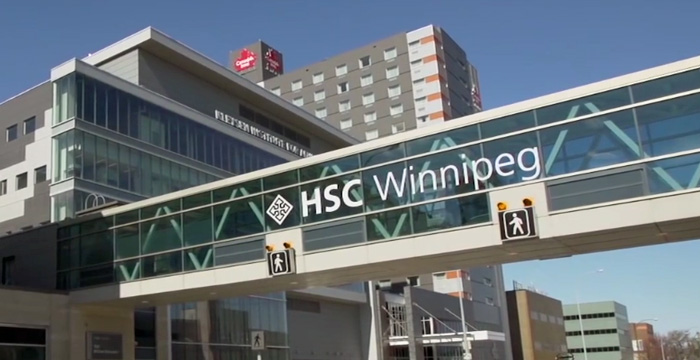A comprehensive epilepsy program being established in Manitoba will offer life-changing surgery within the province for adults living with the chronic neurological condition.
“Our government is committed to strengthening health care by providing better care and improved access to specialist services,” said Health Minister Audrey Gordon. “Investing in a comprehensive adult epilepsy program that can provide monitoring and life-changing surgical intervention for patients will allow Manitobans to get the care they need here at home.”
An annual investment of more than $2.5 million in operating funding will support both the establishment of the adult epilepsy surgery program as well as the expansion of the pediatric program, which has completed about 15 surgeries per year since starting in 2017. When the expanded program is fully operational, approximately 50 epilepsy surgeries will be completed per year in Manitoba including 20 adult and 30 pediatric cases, said Gordon.
The program, including surgeries, will be run at Health Sciences Centre (HSC) Winnipeg.
“For patients with epilepsy, surgery can provide significant lifestyle improvements while reducing their ongoing health-care needs,” said Dr. Shawn Young, chief operating officer, HSC Winnipeg. “Having a comprehensive epilepsy program will advance the level of care available in our province, making it easier for patients to overcome what can be a debilitating condition. This is a very significant investment that will improve the lives of patients, strengthen neurology services and improve health care in Manitoba.”
For the health-care system, Young noted this can mean fewer patient visits to emergency departments and admissions to hospitals, as well as less demand for diagnostic scans and a reduced need to send patients out of province for care.
Epilepsy is a symptom of a neurological disorder that affects the brain and shows itself in the form of seizures. While the primary form of treatment is long-term drug therapy, these drugs can have numerous and sometimes severe side effects. If drug therapy is not effective, the patient is referred to an epilepsy monitoring unit (HSC Winnipeg has both adult and pediatric units) to determine different drug therapy approaches and appropriateness for surgical intervention.
Approximately one-third of all epilepsy patients have seizures that cannot be controlled with medication, resulting in frequent emergency room visits and lengthy hospitalizations.
“The Epilepsy and Seizure Association of Manitoba is encouraged to hear of the commitment to establishing a comprehensive epilepsy program in Manitoba,” said Chris Kullman, president, the Epilepsy and Seizure Association of Manitoba. “The need to advance epilepsy care has been desperately needed and the establishment of the highly anticipated epilepsy monitor unit at HSC and surgical program are measures which will greatly improve the lives of thousands of Manitobans living with epilepsy.”
The program’s establishment is being supported by the Children’s Hospital Foundation of Manitoba, which is contributing $1.2 million to purchase a robotic stereotactic assistance guidance system. The system, known as ROSA, helps neurosurgeons align multiple trajectories for electrode placement, resulting in safer and less-invasive procedures that improve patient comfort and outcomes.
“Our community of donors recognizes how important it is to ensure kids and their families get the epilepsy care they need, right here at home,” said Stefano Grande, president and CEO, Children’s Hospital Foundation. “We are proud to be able to purchase the ROSA so that the brilliant caregivers at HSC Children’s can continue to give better futures to kids.”
The announcement follows previous investments to expand HSC Winnipeg’s adult epilepsy monitoring unit to four beds from two beds and establish the pediatric epilepsy surgery program, the minister noted. It also reflects Manitoba’s ongoing efforts to strengthen neurology services including:
- constructing and establishing of a new, 28-bed acute stroke unit at HSC Winnipeg, which will improve patient outcomes that shorten their time in hospital;
- hiring of six neurologists in the past 18-plus months;
- successfully recruiting three additional neurologists, who are all expected to start work at HSC Winnipeg later this year;
- hiring of two nurse practitioners to support services in the MS Clinic, with the recruitment of a third Nurse Practitioner ongoing;
- recruiting hospital physicians to support inpatient work in neurology and stroke care, which will free up neurologists to focus on providing more specialized care; and
- increasing the clinical stipend for MS physicians.
“Manitoba is committed to building a robust neurology section that is capable of delivering leading-edge services to patients who require their care,” said Gordon. “Investing in a comprehensive epilepsy program will provide further support for ongoing recruitment and retention efforts, which will strengthen neurology services and improve access to care for patients.”
The adult epilepsy surgery program is expected to commence next spring, pending the successful recruitment of a neurosurgeon, the minister added.




